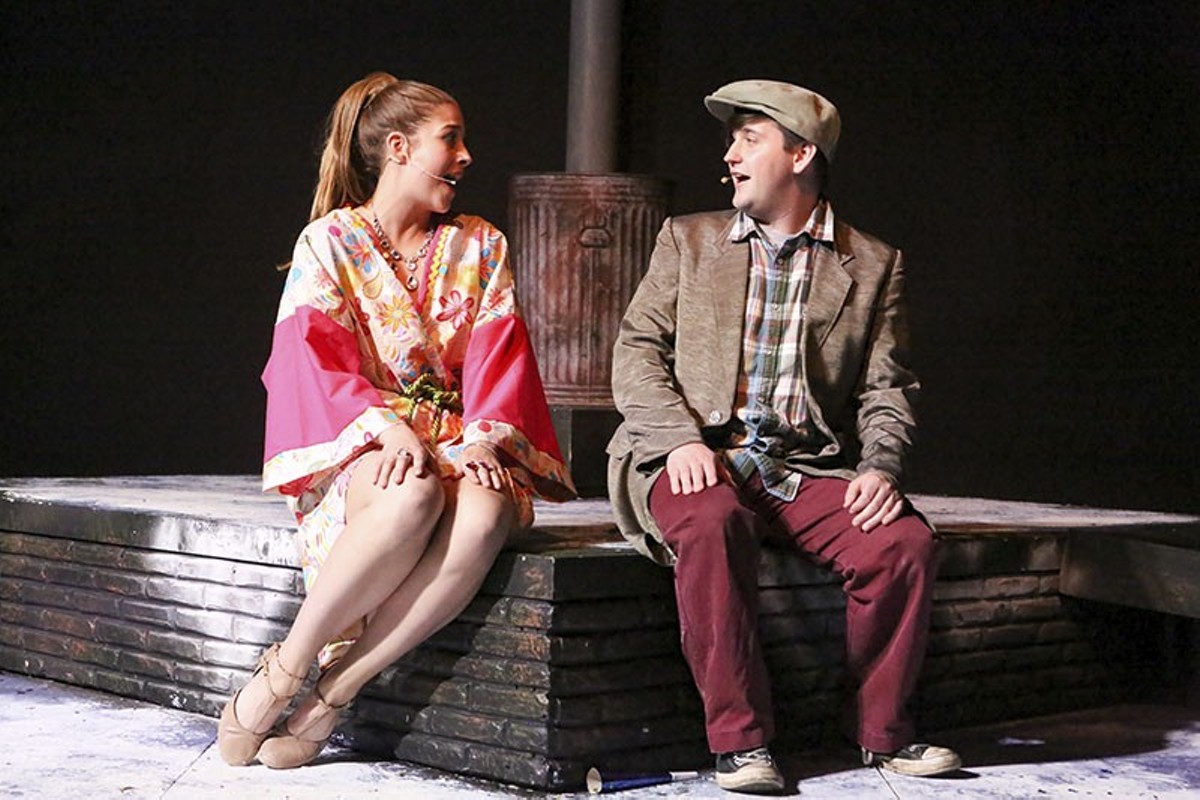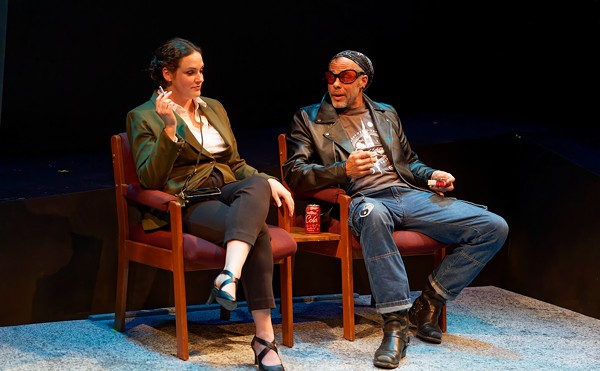In a world full of remakes, rip-offs and rehashes, it's nice to know that there are still surprises. Namely, that an ancient Sumerian play about the winter solstice can somehow be fresh and invigorating in our tired modern world. It's true that there's nothing new under the sun — except for the sun itself, which has been reborn every year since time immemorial.
Tom Jones and Harvey Schmidt poured the money they made from The Fantasticks into Celebration, a musical version of the aforementioned ritual play about the sun and the moon duking it out on the longest night of the year. Their original production was not well-received in 1969, perhaps because the story is rather slender for a Broadway production. Or maybe it was the subtext about artificiality falling by the wayside so that something new and real could take root. What's more artificial than Broadway?
But New Line Theatre has proven time and again that what stumbles on the big stage can spring into life in a black box theater. Under the direction of Scott Miller and Mike Dowdy-Windsor, New Line's current staging of Celebration is a mystical journey that brings rebirth and rejuvenation.
The plot is bare bones, as all good rituals are. Orphan (Sean Michael) is a naive country boy driven into the cruel city after the family farm is lost. He's in search of William Rosebud Rich (Zachary Allen Farmer), the jaded millionaire who plans to build a shopping center on the farmland, but instead finds the opportunistic Potemkin (Kent Coffel), a bum who in his time has been both a carnival barker and a priest. Potemkin lays out his worldview in the song "Survive," which has an undertone of menace that young Orphan doesn't recognize.
Then Angel (Larissa White) literally falls into Orphan's arms. She's the ambitious panties-and-pasties-clad singer of the band that will entertain Rich at his New Year's Eve party. Angel gets Orphan and Potemkin into the party, which gives Orphan his shot at convincing Rich to relinquish the land. Proximity to Rich also gives Potemkin his final big score, if he plays his cards right.
All of these matters are settled by the end of the first act. Everybody is happy with the outcome, except for Angel and Orphan. The pair realize they love each other, but Rich has claimed Angel has his bride. Only a battle to the death between Orphan and Rich can settle this, but Rich is lost in his artificial world of money and yes-men and doesn't realize what's about to happen.
Michael and White are both excellent in their roles, which are more archetypes than characters. Orphan carries a single seed in his satchel and sings about his garden; Angel is beautiful and wants only to have her dreams come true. Their love is nurtured mostly through dreamy eyes and locked gazes. "I think we're in a different play," Angel tells Orphan at one point, and she's right — they're outside the mercenary world of Rich and Potemkin.
Farmer is a hoot as Rich, a crass man clad in lunar blue robes and sporting the familiar, evil blonde toupee of New York big shots everywhere. He screams, bellows and threatens his way through the show, never listening to anyone else — except Potemkin. The canny survivor finagles a place at Rich's shoulder, happy to bask in his reflected wealth and power.
Only Potemkin is a mystery, and Coffel plays that up until the final moment. He is both narrator and player, commenting on the action and leading it toward its inevitable conclusion. At the end Angel and Orphan are together, their love growing stronger. But so is the menace that surrounds Potemkin; Orphan has decided to stay in the city and make his fortune to give Angel everything she wants. At the moment of the sun's victory, the seeds for the new moon are planted. The cycle will continue, as it always has.






